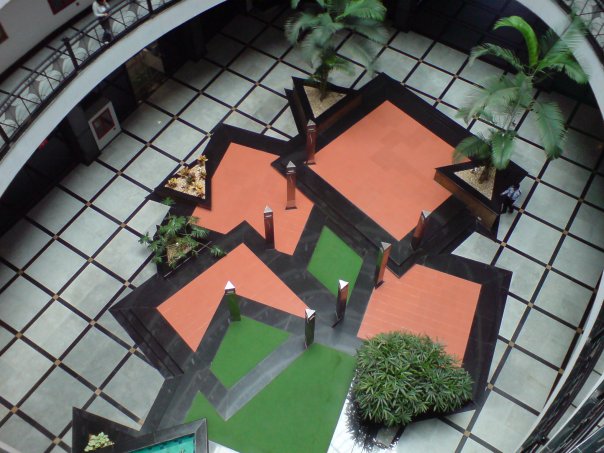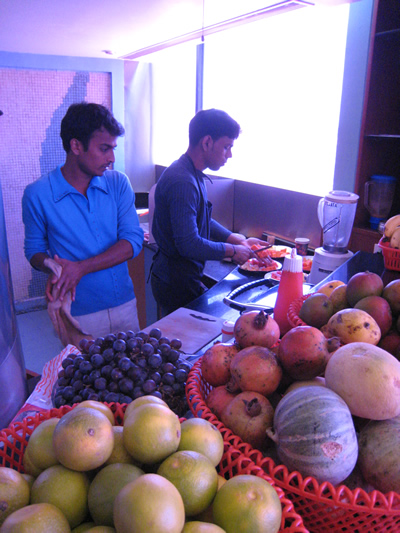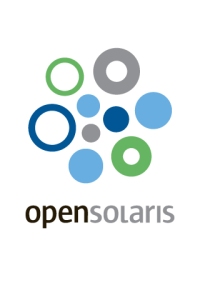Sun’s India Engineering Center (IEC) occupies most of the Divya Shree Chambers building off Langford Road in Bangalore. I kept on telling everybody that is near M.G Road but in reality it is nothing like that



Lunch (always a major preoccupation with me) is provided at the 5th-floor canteen, which gets very crowded around 12:45,hence sometimes we need to book the conference room to have our lunch . There’s a buffet of both Vegetarian and its non counterpart for a reasonable sum of Rs 35 /- (Very very cheap as per Bangalore standards but just a bit expensive as per Kolkata standards.)


For a change we can order fresh fruits , as I saw for some ladies who prefered them for the dieting routine.

The Sun break rooms have a great selection of teas, including elaichi (cardamom), masala (what Americans call chai spice), and ginger. Plus a selection of other hot drinks – cocoa, instant coffee, and flavored mixes that I haven’t quite understood yet.

There’s a machine dispensing hot water and hot milk to mix these with. There is also brewed coffee, chocolate powder,tomato soup mix and powdered,badam milk and many more .

Now coming to the important part that is WORK . The very first day I got my Badge ready for which there was a photo session sort of arrangement at the ground floor near the data-center . For the first time in my life I felt very important .
For those of you who don’t know what a Badge is , I will like to tell that it is card like thing with my photo and other details and chip and a magnetic strip .It comes to use at the security gates where we need to show it a sensor and only then the door opens .Besides this is used when we need to use a Sun Ray machine ( Runs on Solaris 10 and has a SPARC architecture) , it is inserted into a slot inside the machine.

Its is a really nice environment around to work with caring and loving seniours and and lots of respect for every employee . The working time is flexible ,by flexible I mean there is no fixed working schedule and timing or anything like that . When you are done with your work you can can go home and sleep and if its like you prefer to work nights then you can work in the office during the nights.
So I am kind of enjoying the experience as a Sun Intern and another news I have just heard that Sun IEC Bangalore will be celebrating its 10th birthday by throwing a huge party at a hotel called OTERRA at Electronic city and we are invited . So my next post will be on IEC 10 years of Engineering Excellence.












